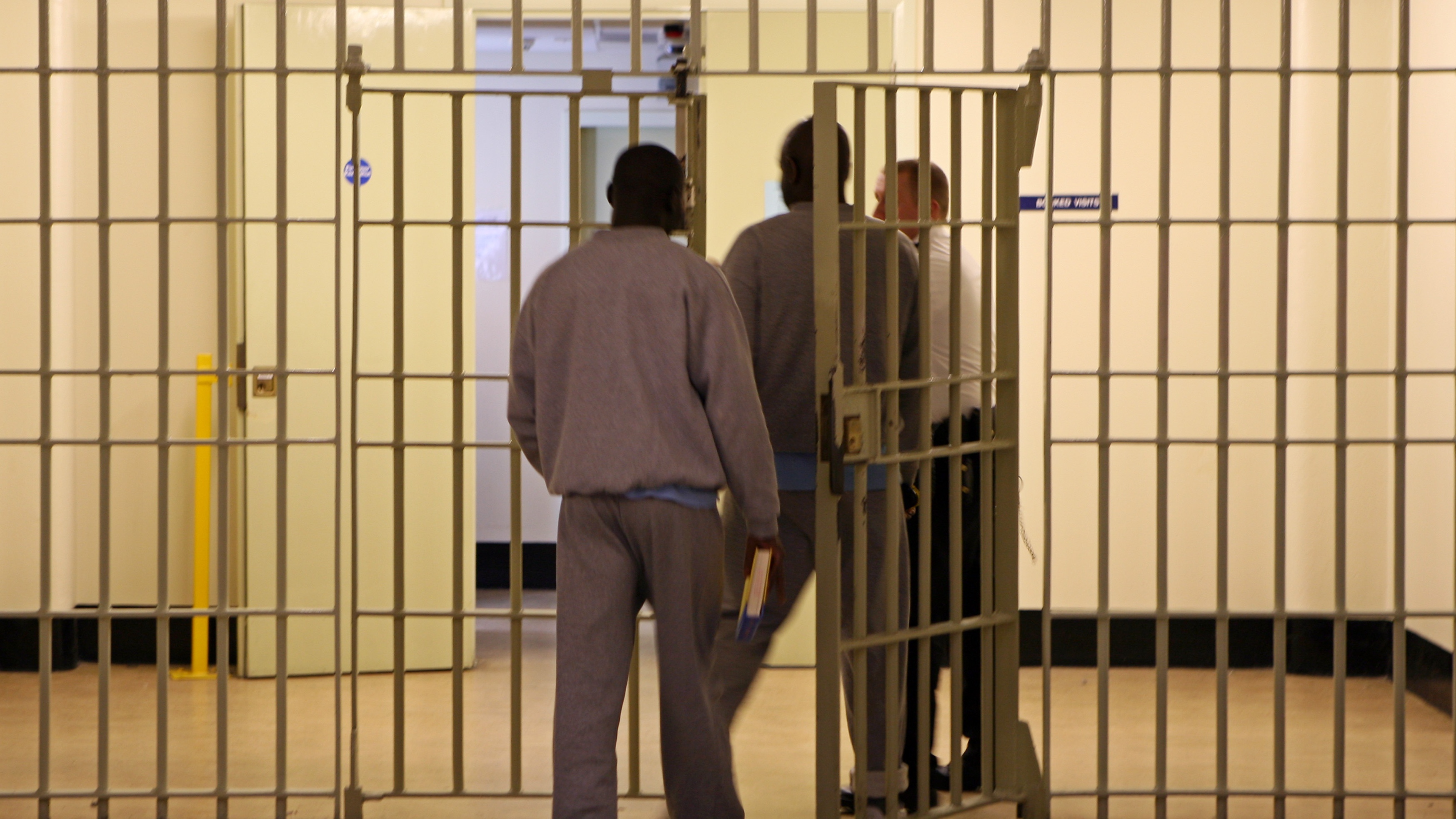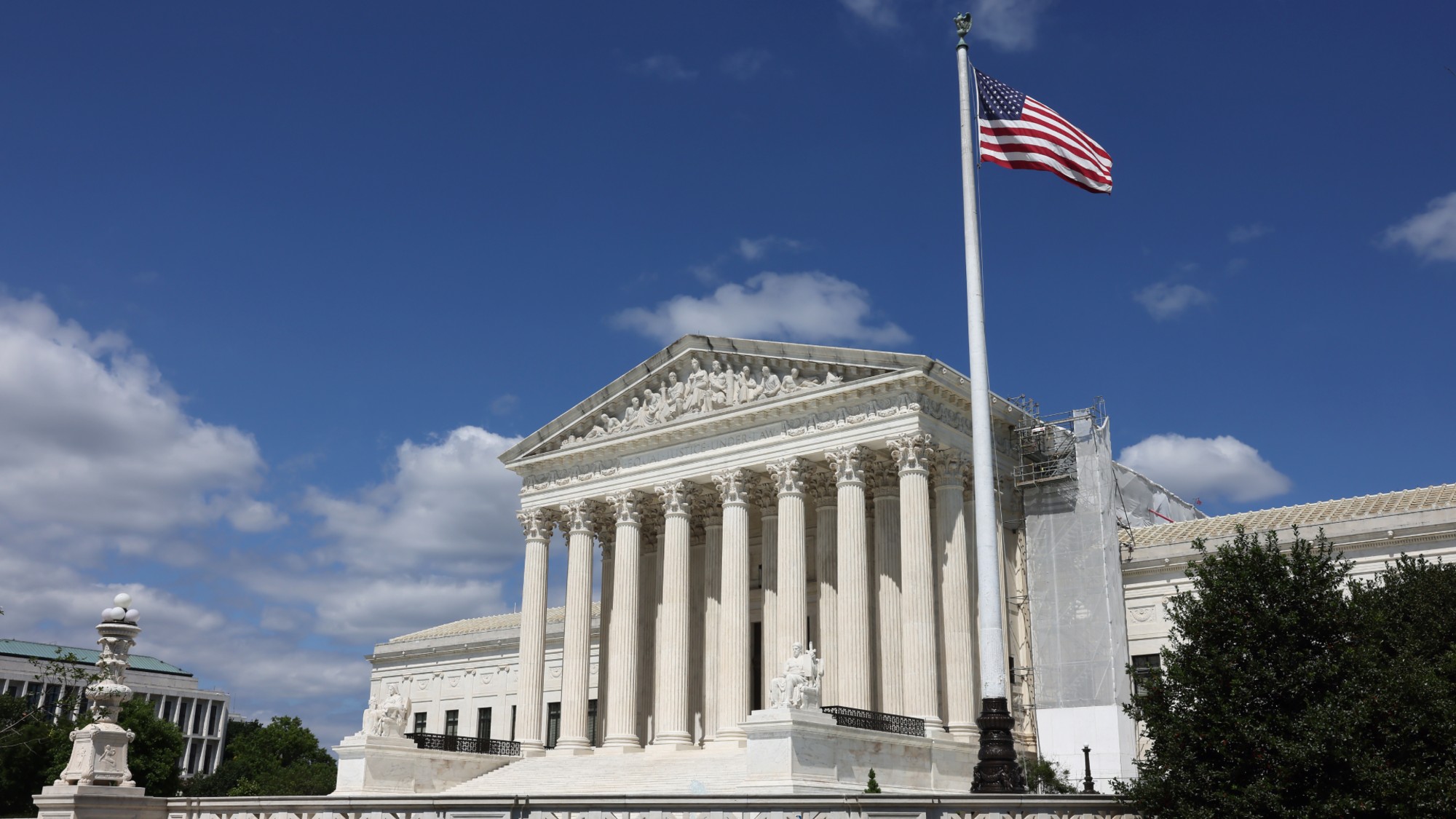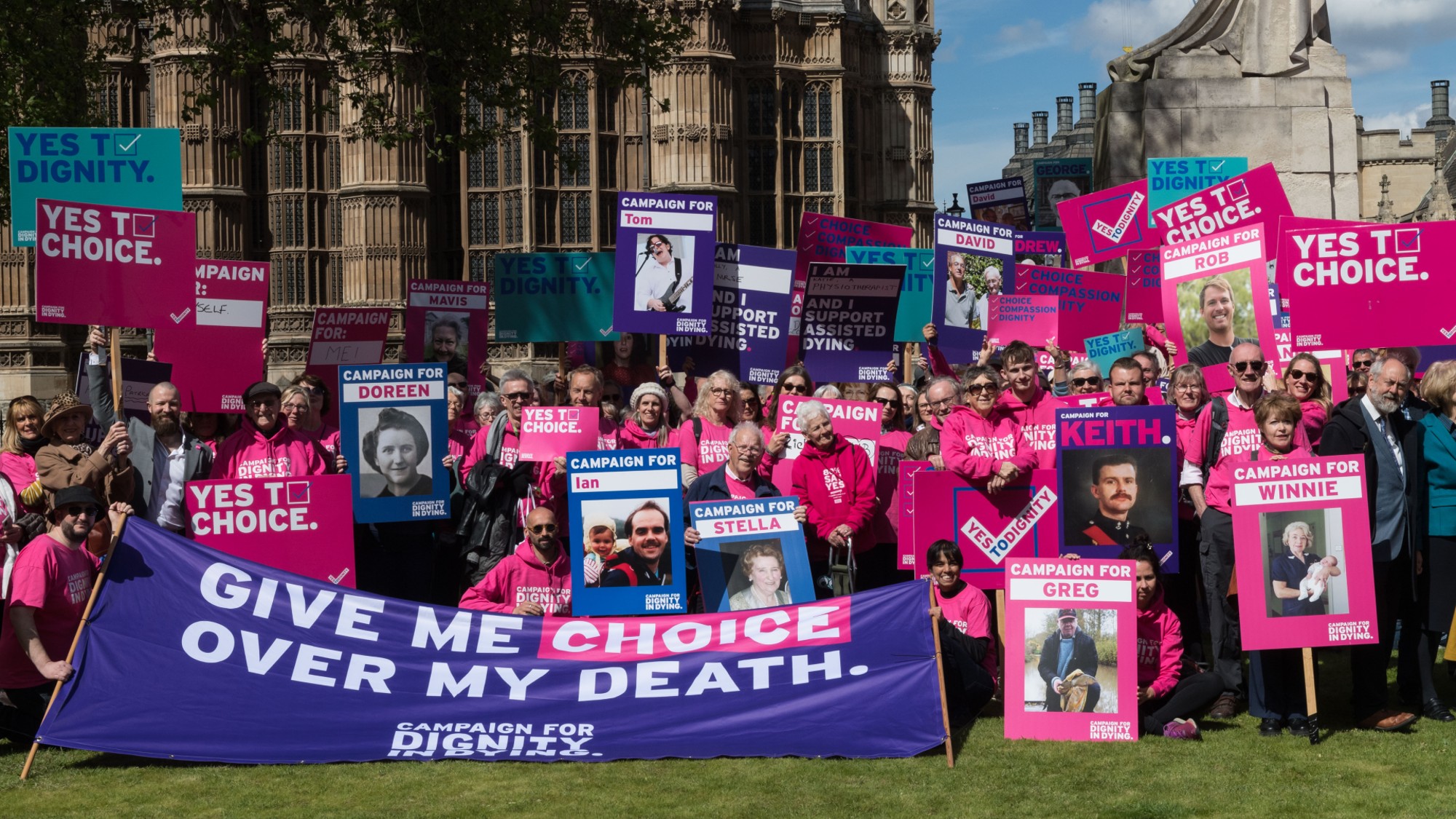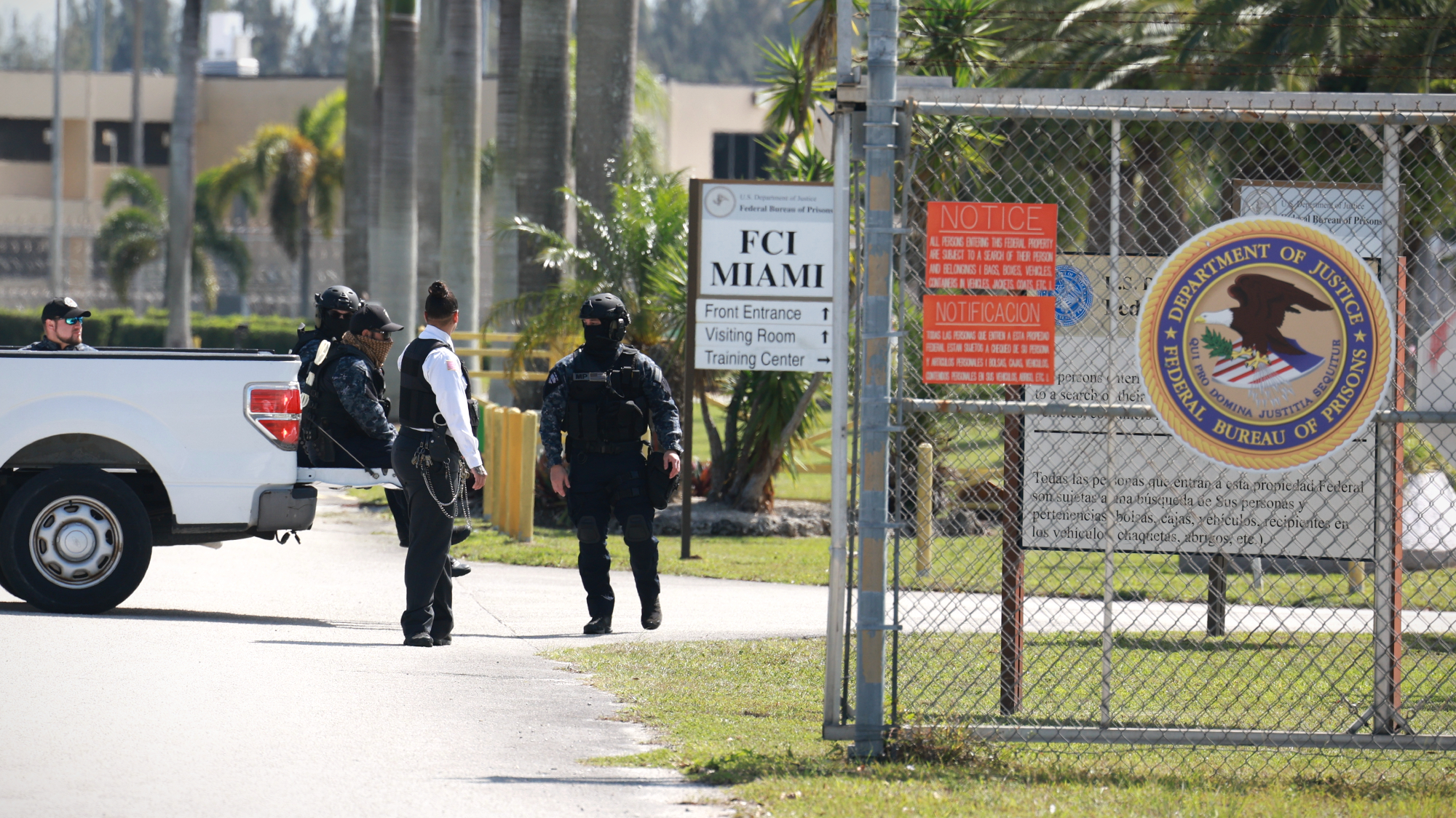Should ministers have powers to stop early release for prisoners?
Inmates could be forced to serve the full term of their sentence under new powers

A free daily email with the biggest news stories of the day – and the best features from TheWeek.com
You are now subscribed
Your newsletter sign-up was successful
Ministers are to be handed powers to block the automatic release of dangerous prisoners and force them to serve their full sentences under new measures designed to protect the public.
The rule change will allow ministers to override judges’ “fixed-term sentences”, which set automatic release dates at “halfway or two-thirds through offenders’ jail terms,” reported The Telegraph.
They will instead be able to refer cases to the parole board to require prisoners to serve their full prison sentences if they are deemed to have become a “significant public protection concern” and to pose “a very high risk of serious harm”, reported the paper.
The Week
Escape your echo chamber. Get the facts behind the news, plus analysis from multiple perspectives.

Sign up for The Week's Free Newsletters
From our morning news briefing to a weekly Good News Newsletter, get the best of The Week delivered directly to your inbox.
From our morning news briefing to a weekly Good News Newsletter, get the best of The Week delivered directly to your inbox.
The Telegraph added that it had “originally been thought” that the new power would only apply to prisoners who had been radicalised in prison and who would become a terrorist threat if freed.
But new Ministry of Justice (MoJ) guidance seen by the paper suggests the powers could be applied to “more than 180 types of crime” with the extended detention of prisoners if it is thought they pose a risk of committing crimes after release.
What types of crime could see prisoners kept in detention?
The crimes that could justify extended detention under the new powers include “robbery, burglary, assault with intent to cause grievous or actual bodily harm, affray, criminal damage, brothel-keeping, carrying a firearm with criminal intent, possessing indecent images, making threats to kill, domestic violence and a host of sexual offences,” said The Telegraph.
According to the new MoJ policy framework, seen by the paper, the powers can be used on prisoners serving a fixed-term sentence and “who were not judged to be dangerous at the point of sentence but who are subsequently assessed to pose a significant risk of serious harm to members of the public.”
A free daily email with the biggest news stories of the day – and the best features from TheWeek.com
It also said that the powers would not allow for the prisoner to be detained beyond the end of their sentence as handed down by the court and offenders must be released at the end of their sentence in line with the judge’s decision.
A spokesperson for the MoJ told the paper that the power would be “rarely” used for those who posed “a very high risk of serious harm”.
What do critics of the plans say?
Opponents of the plan warned that the new powers could mean that thousands of prisoners languish in jail for “lower-order” crimes, comparing the plan to the introduction of Imprisonment for Public Protection (IPP) sentences in 2005, which saw prisoners remain in jail for years without a release date, said The Guardian.
Peter Dawson, director of the Prison Reform Trust, told the paper: “When a Labour home secretary introduced the now discredited IPP sentence we were all told it would be used rarely.
“More than 8,000 cases later, that sounds as hollow as the assurances being made for this unprincipled transfer of sentencing powers from the judiciary to the executive.”
-
 What to expect financially before getting a pet
What to expect financially before getting a petthe explainer Be responsible for both your furry friend and your wallet
-
 Pentagon spokesperson forced out as DHS’s resigns
Pentagon spokesperson forced out as DHS’s resignsSpeed Read Senior military adviser Col. David Butler was fired by Pete Hegseth and Homeland Security spokesperson Tricia McLaughlin is resigning
-
 Colbert, CBS spar over FCC and Talarico interview
Colbert, CBS spar over FCC and Talarico interviewSpeed Read The late night host said CBS pulled his interview with Democratic Texas state representative James Talarico over new FCC rules about political interviews
-
 The age of criminal responsibility
The age of criminal responsibilityThe Explainer England and Wales ‘substantially out of kilter with the rest of the world’, says filmmaker whose drama tops Netflix charts
-
 How far does religious freedom go in prison? The Supreme Court will decide.
How far does religious freedom go in prison? The Supreme Court will decide.The Explainer The plaintiff was allegedly forced to cut his hair, which he kept long for religious reasons
-
 Captain Tom: a tarnished legacy
Captain Tom: a tarnished legacyTalking Point Misuse of foundation funds threatens to make the Moore family a disgrace
-
 Assisted dying: will the law change?
Assisted dying: will the law change?Talking Point Historic legislation likely to pass but critics warn it must include safeguards against abuse
-
 Smoking ban: the return of the nanny state?
Smoking ban: the return of the nanny state?Talking Point Starmer's plan to revive Sunak-era war on tobacco has struck an unsettling chord even with some non-smokers
-
 Congress OKs greater prisons oversight
Congress OKs greater prisons oversightSpeed Reads The legislation came after reporting from The Associated Press exposed corruption in the prison system
-
 When does adulthood begin?
When does adulthood begin?Talking Point From 16-year-old voters to lifetime bans on smoking, young people are living through a transition in views on political, social and emotional maturity
-
 Whole-life sentences: when life in prison actually means life
Whole-life sentences: when life in prison actually means lifefeature Lucy Letby becomes only fourth woman in UK to receive country’s harshest penal punishment